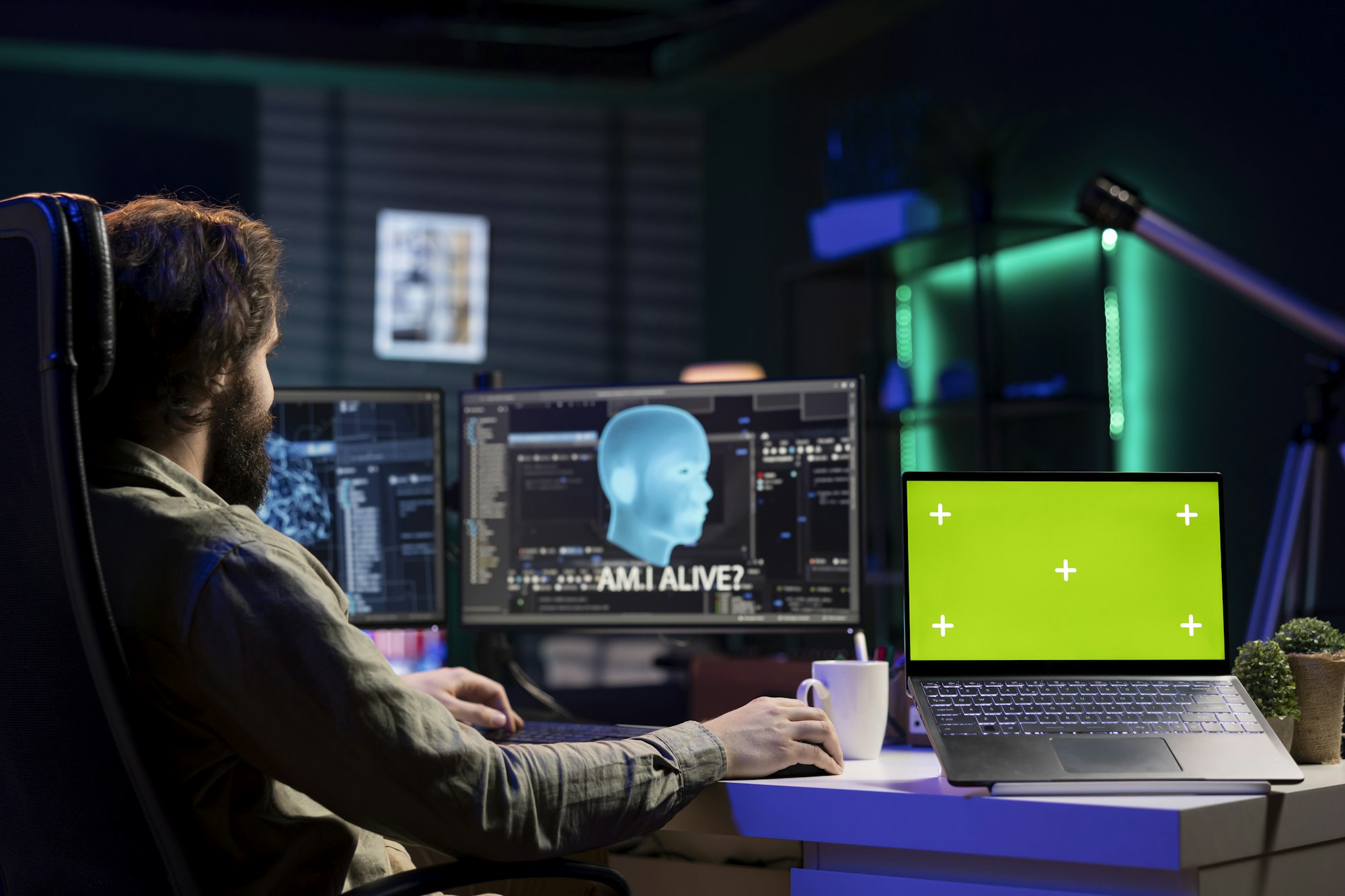Beyond Human: Ray Kurzweil’s Bold Predictions for 2045
Over the past twenty years, artificial intelligence has evolved from an emerging specialty to a powerhouse of technological innovation. Ray Kurzweil, a leading expert at Google, has traced the crucial developments and the rapid surge in computing capabilities that have pushed AI to new heights. Today, advanced language models are getting better at understanding context, employing common sense, and engaging in meaningful social interactions, though there’s still much room for improvement.

Overcoming the Current Challenges of AI
Despite significant advancements, AI has not yet achieved human-level intelligence—a milestone Kurzweil anticipates by 2029. The future promises even greater computational power, which will enhance AI’s performance across various fields. Moreover, improvements in algorithms and an increase in data availability are expected to solve issues like AI “hallucinations,” where models produce nonsensical or incorrect outputs.
The Singularity: Combining Human and Machine Intelligence
The Singularity envisions a future where human intelligence and advanced computational technologies merge, potentially multiplying intelligence exponentially. Kurzweil predicts this union will be facilitated by innovations such as brain-computer interfaces and nanobots that could seamlessly integrate with human neural pathways.
The Promise and Ethical Dilemmas
This fusion of AI with human capabilities could dramatically enhance mental capacities, including processing speeds and memory. However, such advancements also raise significant ethical concerns regarding personal identity and privacy. The transformative effects on society and individual interactions are profound and require thorough examination and careful handling.
AI and Its Impact on Future Social Challenges
Kurzweil also explores the potential societal impacts of AI, such as its role in automating jobs and influencing social equality. As AI integrates further into everyday life, significant shifts in the job market are expected, with certain roles becoming obsolete and new opportunities emerging.
Navigating the Perils of Advanced AI
The risks associated with sophisticated AI systems are a growing concern among tech leaders and researchers. These include unforeseen consequences that could pose existential threats. Kurzweil acknowledges these dangers and emphasizes the necessity of responsible AI development, adhering to ethical frameworks like the Asilomar AI Principles.
Immerse yourself in Ray Kurzweil’s visionary insights on AI and the Singularity, highlighting the technological strides, societal implications, and ethical considerations of merging human and machine intelligence.

FAQ: Exploring Ray Kurzweil’s Vision of AI and the Singularity
1. What is the Singularity, according to Ray Kurzweil?
The Singularity is a future concept envisioned by Ray Kurzweil where human intelligence blends seamlessly with advanced computational technologies. This point in time is predicted to result in an exponential increase in intelligence, both human and artificial. Kurzweil suggests that this merger could be achieved through breakthroughs like brain-computer interfaces and microscopic robots (nanobots) that could integrate directly with our neural systems, enhancing our cognitive capabilities beyond our current limitations.
2. How does Ray Kurzweil predict AI will impact jobs and the economy?
Kurzweil addresses the transformative impact AI is likely to have on the job market and the economy. As AI technologies advance and become more integrated into various industries, some jobs may become obsolete while new roles are created, particularly those requiring high levels of technical skill and creativity. This shift could lead to significant changes in how we work and what skills are most valued in the economy. Kurzweil emphasizes the importance of adapting to these changes, suggesting that education and training systems will need to evolve to prepare people for the new job landscape.
3. What are the ethical concerns associated with AI and the Singularity?
Kurzweil’s vision of the Singularity raises profound ethical questions, particularly concerning personal identity, privacy, and the societal implications of merging human and machine intelligence. There is concern about how such technologies might alter our sense of self and our control over personal information. Additionally, the potential for unequal access to advanced technologies could widen the gap between different social groups, exacerbating existing inequalities. These ethical considerations are central to discussions on how to develop and deploy AI technologies responsibly, ensuring they benefit society as a whole.
Sources The Guardian


